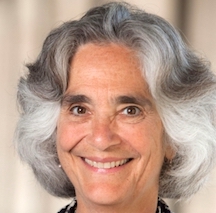Stanford University’s Faculty Quality of Life Survey Reveals a Gender Gap in Satisfaction Levels
Posted on Nov 27, 2019 | Comments 0
 Persis Drell, provost at Stanford University in California recently released the results of the university’s Faculty Quality of Life Survey. The survey addressed 10 aspects of faculty life: satisfaction, workload, work-related sources of stress, life events and accommodations, leadership opportunities, department climate, discrimination, sexual harassment, retention, and life outside the institution.
Persis Drell, provost at Stanford University in California recently released the results of the university’s Faculty Quality of Life Survey. The survey addressed 10 aspects of faculty life: satisfaction, workload, work-related sources of stress, life events and accommodations, leadership opportunities, department climate, discrimination, sexual harassment, retention, and life outside the institution.
Nearly three-quarters of the faculty (74 percent) rated their overall quality of life at Stanford as “good” or “excellent.” However, many reported high levels of stress both in their work and life outside the institution. Women faculty responded less favorably to many of the survey questions, in particular concerning work-related stress.
Stanford’s women faculty members responded less positively than their male colleagues across all areas addressed in the survey. The greatest differences can be found in concerns related to their scholarship and their experiences with discrimination and harassment.
Some of the key finding in the survey in relation to women faculty were:
- Forty percent of women faculty “somewhat” or “strongly” agree that they have to work harder than their colleagues to be perceived as a legitimate scholar; among male faculty that number is 19 percent.
- Women consistently report higher rates of stress than men. In particular, 59 percent of women report that finding time to do research has been a source of “a lot” or “a great deal” of stress, compared with 47 percent of men. Similarly, 44 percent of women report scholarly productivity has been a source of “a lot” or “a great deal” of stress, compared with 28 percent of men.
- Thirty-five percent of women report being “mistreated, slighted, insulted, condescended to, or ignored” because of their gender, as compared with 1.4 percent of men. Thirty-one percent of women report having experienced a sexist remark, compared with 3 percent of men.
Dr. Drell stated that “clearly, we need to address some issues for our female faculty. While we are certainly looking at the data from an institutional view, much of this new information will be used at the school level to drive policy change based on the distinct needs of the faculty within schools and departments.”
Dr. Drell became provost at Stanford in February 2017. Earlier, she served as dean of the School of Engineering at Stanford and as director of the SLAC National Accelerator Laboratory in Menlo Park, California, which is operated by Stanford for the U.S. Department of Energy. Dr. Drell is a graduate of Wellesley College in Massachusetts. She holds a Ph.D. in atomic physics from the University of California, Berkeley.
Filed Under: Faculty • Research/Study








